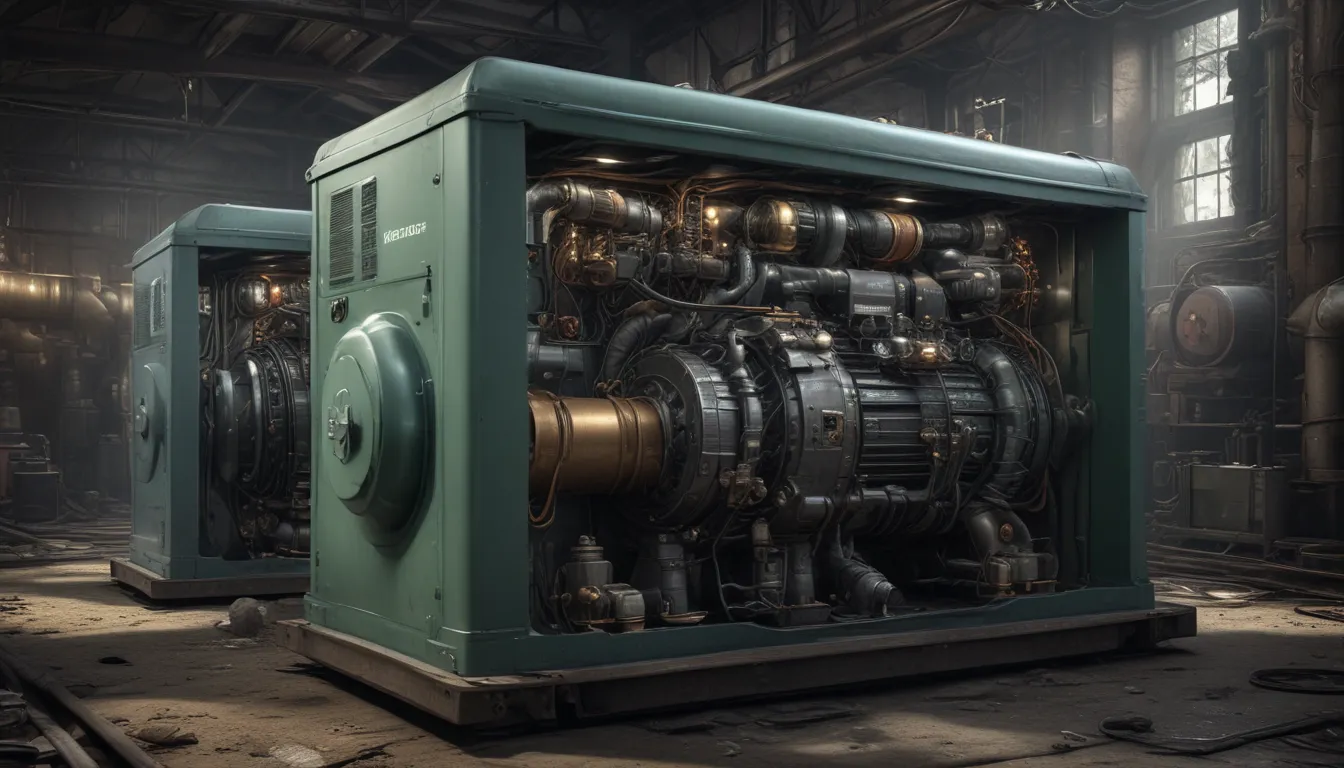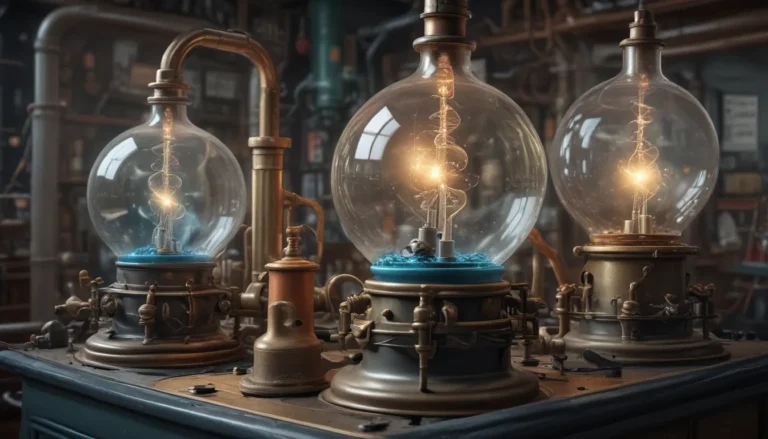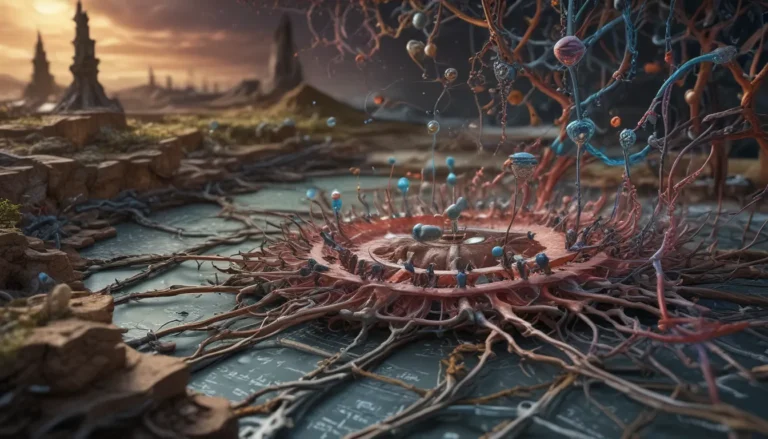A Note About Images: The images used in our articles are for illustration purposes only and may not exactly match the content. They are meant to engage readers, but the text should be relied upon for accurate information.
Generators are remarkable devices that serve a vital role in our daily lives, providing us with power when we need it most. They come in various types and fuel options, catering to different power needs. In this article, we will uncover 12 extraordinary facts about generators that will leave you amazed by their capabilities.
Generator Basics
Generators are devices that convert mechanical energy into electrical energy, ensuring power availability during emergencies and at construction sites. The key components of a generator include an engine, an alternator, a fuel system, and a control panel.
Different Types of Generators
There are several types of generators, including portable generators, standby generators, inverter generators, and solar-powered generators. Each type has its unique features and applications, catering to different power requirements.
Power Output
Generators are rated for their power output, typically measured in watts or kilowatts. This rating determines the number and types of appliances or equipment that can be connected and operated simultaneously.
Generator Fuel Options
Generators can be powered by various fuel sources, such as gasoline, diesel, propane, or natural gas. The choice of fuel depends on factors like availability, cost, and environmental considerations.
Automatic Transfer Switch
An automatic transfer switch (ATS) automatically transfers the electrical load from the main power supply to the generator during a power outage, ensuring uninterrupted electricity for connected appliances or systems.
Remote Monitoring and Control
Modern generators are equipped with advanced features like remote monitoring and control, allowing users to monitor the generator’s performance, fuel levels, and even start or stop the generator from a remote location.
Noise Levels
Generators produce varying levels of noise during operation. Silent or low-noise generators are available for applications that require minimal noise disturbance, such as in residential areas or outdoor events.
Generator Maintenance
Regular maintenance is crucial to ensure the reliable and efficient performance of a generator. This includes checking and changing the oil, inspecting the fuel and cooling systems, and testing the generator periodically for any potential issues.
Importance in Emergency Situations
Generators play a critical role during emergency situations, such as natural disasters or power grid failures, providing backup power for essential appliances, medical equipment, and communication systems.
Voltage Regulation
Generators have built-in voltage regulation systems to ensure a stable and consistent supply of electricity, protecting sensitive electronic devices from voltage fluctuations.
Energy Efficiency
Modern generators are designed to be energy-efficient, reducing fuel consumption and operating costs, benefiting both the environment and cost savings in the long run.
Portable Power Solution
Portable generators offer a convenient power solution for outdoor activities, camping trips, and remote job sites, being compact, lightweight, and easy to transport.
Conclusion
Generators are incredible devices that have revolutionized various industries and everyday life. Understanding their operation principles and exploring their applications can lead to a greater appreciation for these remarkable inventions. The 12 extraordinary facts shared in this article only scratch the surface of the fascinating world of generators.
FAQs
-
How does a generator work?
- A generator utilizes a magnetic field and the motion of a conductor to generate electrical energy by inducing a current in the wire.
-
What are the different types of generators?
- Diesel, gasoline, propane, and solar generators are among the various types available, each catering to specific needs and environments.
-
Are generators environmentally friendly?
- While traditional generators emit harmful pollutants, advancements in technology have led to cleaner, sustainable options like solar or wind-powered generators.
-
Can generators be used indoors?
- Generators should generally be used outdoors in well-ventilated areas to avoid the risk of carbon monoxide poisoning, with specific models designed for indoor use.
-
Are generators noisy?
- Traditional generators can be noisy, but there are quieter options like inverter generators that reduce noise levels.
-
How long can a generator run continuously?
- The runtime of a generator depends on factors like fuel capacity, load size, and type, with some capable of running for extended periods with proper maintenance.
-
Can generators power an entire house?
- Depending on its power output, a generator can potentially power an entire house during a blackout, provided it meets the wattage requirements.
-
Can generators be used for sensitive electronics?
- Yes, there are generators equipped with built-in inverters that provide clean and stable power suitable for sensitive electronics.
-
How often should a generator be serviced?
- Regular maintenance is recommended, typically annually or after a specified number of operating hours, as outlined in the manufacturer’s guidelines.
-
Can generators be used during extreme weather conditions?
- While some generators can withstand harsh weather, protecting them from rain, snow, or strong winds is advisable to ensure safe operation.
Generators are indispensable in our modern society, ensuring power availability in various situations. Exploring their technical aspects and understanding their diverse applications can deepen our admiration for these exceptional inventions.






